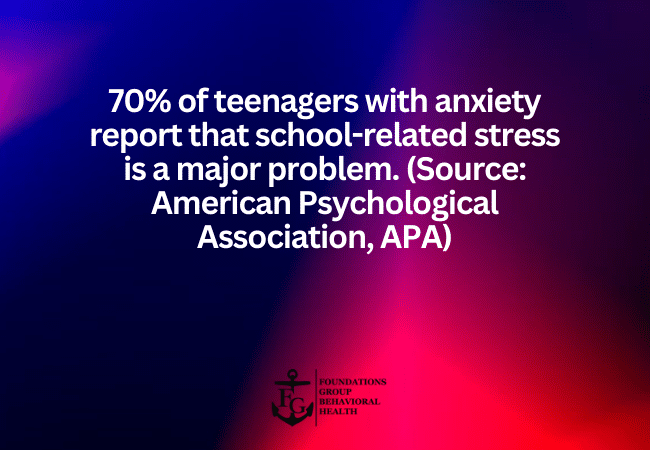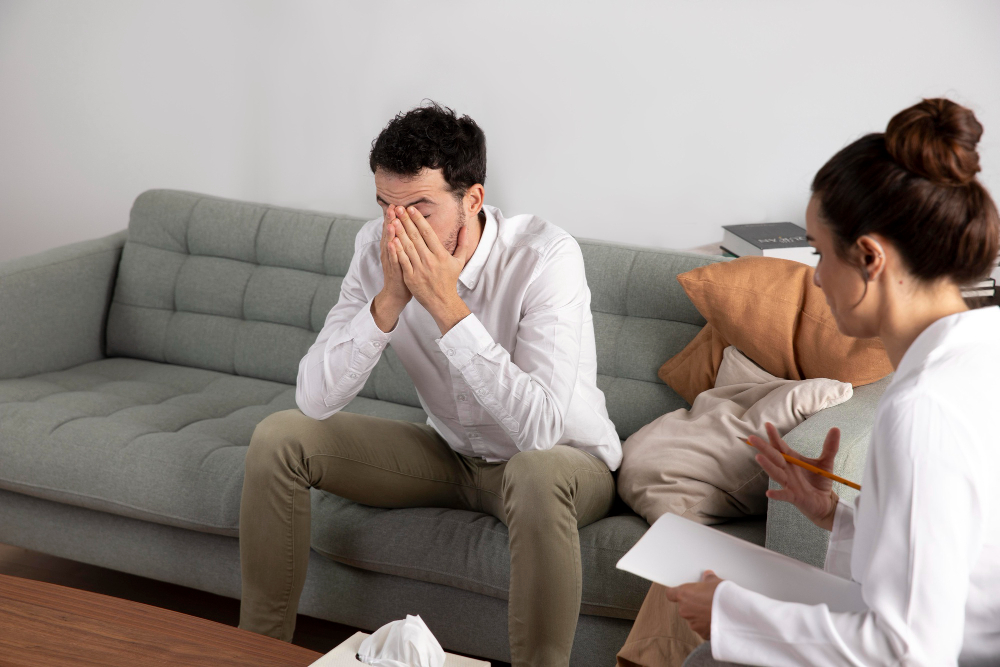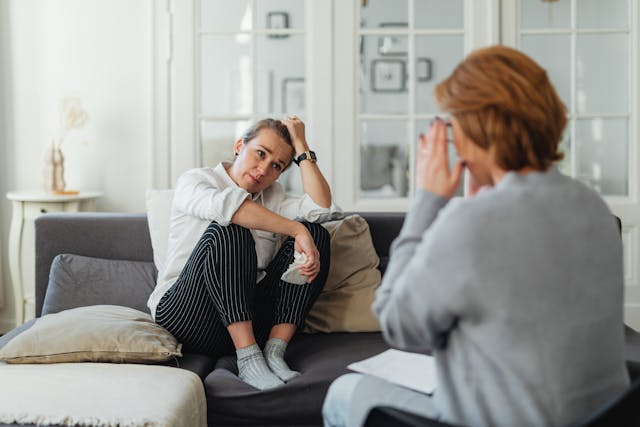Anxiety is one of the most prevalent mental health concerns among teenagers today. While some stress is normal, persistent anxiety can interfere with daily life, affecting academic performance, relationships, and overall well-being. Teenage anxiety is often triggered by a combination of social, academic, and environmental factors, making it crucial for parents, educators, and mental health professionals to understand and address these triggers effectively.
At Foundations Group Behavioral Health, we offer specialized Anxiety Treatment Programs, Psychiatric Day Treatment, Half-Day Treatment Programs, and Outpatient Mental Health Programs designed to support teenagers struggling with anxiety. By identifying common anxiety triggers and equipping teens with coping strategies, we can help them build resilience and navigate their formative years with confidence.
Understanding Teenage Anxiety
Adolescence is a period of rapid development, marked by emotional, social, and academic challenges. According to the National Institute of Mental Health (NIMH), nearly 32% of U.S. teenagers experience an anxiety disorder, with symptoms often emerging between the ages of 12 and 18.
Signs and Symptoms of Anxiety in Teenagers
Teen anxiety can manifest in different ways, including:
- Excessive worry about school, friendships, or the future.
- Avoidance of social situations or academic challenges.
- Difficulty sleeping or frequent nightmares.
- Increased irritability, restlessness, or mood swings.
- Physical symptoms such as headaches, stomachaches, or muscle tension.
- Trouble concentrating or feeling overwhelmed by daily tasks.
If left untreated, anxiety can contribute to co-occurring disorders, including depression and ADHD, making early intervention through Mental Health Treatment Programs essential.
5 Common Anxiety Triggers for Teenagers
1. Academic Pressure
Teenagers face immense pressure to excel in school, whether from parental expectations, competitive college admissions, or personal ambition. The fear of failure, upcoming exams, and overwhelming workloads can trigger performance-related anxiety, leading to:
- Procrastination and avoidance of assignments.
- Perfectionism and excessive self-criticism.
- Test anxiety, which can impair memory and concentration.
How to Help:
- Encourage realistic academic goals and time management strategies.
- Teach stress-management techniques, such as deep breathing or meditation.
- Consider academic accommodations through a Psychiatric Day Treatment or Half-Day Treatment Program if anxiety significantly impacts school performance.
2. Social Pressures and Peer Relationships
Friendships, peer approval, and social interactions play a crucial role in teenage development. Many teens struggle with social anxiety, fearing judgment, exclusion, or rejection. Social triggers include:
- Fear of speaking in class or public settings.
- Bullying or cyberbullying on social media.
- Feeling pressure to fit in or meet unrealistic beauty and behavior standards.
How to Help:
- Encourage open conversations about social challenges and self-esteem.
- Promote healthy, supportive friendships while discouraging toxic relationships.
- Offer therapy, such as Cognitive Behavioral Therapy (CBT) or group therapy through an Outpatient Mental Health Program to build social confidence.
3. Family Conflict and Home Environment
Tension at home—whether due to divorce, parental expectations, financial struggles, or sibling rivalry—can cause anxiety in teens. Unstable or high-conflict environments can make adolescents feel unsafe or pressured to mediate family issues.
How to Help:
- Foster open communication and create a safe space for teens to express their emotions.
- Encourage family therapy through Mental Health Treatment Programs to improve relationships.
- Teach conflict resolution skills to help teens navigate difficult family dynamics.
4. Fear of the Future and Uncertainty
Teenagers often feel overwhelmed by the pressure to make major life decisions regarding college, careers, and their future. The uncertainty of growing up can lead to:
- Indecisiveness and overthinking.
- Fear of failure and the inability to meet expectations.
- Existential anxiety, where teens struggle with their identity and purpose.
How to Help:
- Encourage flexibility and reassure teens that it’s okay to take time to explore their interests.
- Offer career counseling or mentorship programs to guide decision-making.
- Support therapy through an Anxiety Treatment Program to help them manage uncertainty and stress.
5. Social Media and Comparison Culture
Social media has transformed the way teenagers interact, but it has also become a major source of anxiety. Constant exposure to curated images, unrealistic lifestyles, and online validation can create:
- Low self-esteem due to comparisons with influencers or peers.
- Social validation anxiety, where self-worth depends on likes and comments.
- Fear of missing out (FOMO), leading to compulsive social media use.
How to Help:
- Encourage healthy social media habits, such as setting screen time limits.
- Promote self-worth beyond online validation through hobbies and in-person interactions.
- Offer therapy through an Outpatient Mental Health Program to address social media-related anxiety.
The Connection Between Anxiety and Co-Occurring Disorders
Many teenagers with anxiety also experience co-occurring mental health conditions, such as:
- Depression: Persistent sadness, lack of motivation, or feelings of hopelessness.
- ADHD: Difficulty focusing, restlessness, and impulsive behavior.
- Substance Use Disorders: Using alcohol or drugs to cope with anxiety symptoms.
Early intervention through a Co-Occurring Disorder Treatment Program can help teens manage multiple conditions simultaneously.

How Professional Treatment Can Help
If anxiety begins to interfere with daily life, professional support is essential. At Foundations Group Behavioral Health, we offer evidence-based Mental Health Treatment Programs tailored to teenage needs, including:
1. Psychiatric Day Treatment
- A structured program for teens with severe anxiety that interferes with school and home life.
- Individual and group therapy to develop emotional regulation skills.
- Medication management if necessary.
2. Half-Day Treatment Program
- A flexible approach that allows teens to attend therapy while managing school responsibilities.
- Skill-building sessions focused on stress management, self-confidence, and coping strategies.
- A safe space for peer support and group discussions.
3. Outpatient Mental Health Program
- Weekly therapy sessions that fit into a teen’s school and social schedule.
- Focus on identifying anxiety triggers and learning practical coping skills.
- Long-term support for managing anxiety and preventing relapse.
Supporting Your Teen Through Anxiety
How Parents Can Help
- Encourage open dialogue about their feelings without judgment.
- Recognize the signs of anxiety and validate their struggles.
- Model healthy coping mechanisms, such as stress management and self-care.
- Avoid pressure or comparisons that may worsen anxiety.
- Seek professional help when necessary to ensure they receive proper care.
How Schools Can Help
- Provide mental health resources and counseling services.
- Encourage stress management workshops and peer support programs.
- Offer academic accommodations for students struggling with anxiety.
Conclusion
Teen anxiety is a growing concern, but with early intervention, support, and professional care, teenagers can learn to manage their anxiety and thrive. Recognizing common triggers—such as academic pressure, social challenges, and uncertainty—can help parents, educators, and mental health professionals provide effective support.
At Foundations Group Behavioral Health, we offer Anxiety Treatment Programs, Psychiatric Day Treatment, Half-Day Treatment Programs, and Outpatient Mental Health Programs to help teenagers develop the resilience they need to navigate anxiety and build a brighter future.
If your teen is struggling with anxiety, don’t wait to seek help. Call us today at 888.685.9730 to learn more about our specialized treatment options. Your teen’s mental health matters—let’s take the next step together.
FAQ on Common Anxiety Triggers for Teenagers
What are the most common anxiety triggers for teenagers?
Teen anxiety is often triggered by academic pressure, social challenges, family conflicts, fear of the future, and excessive social media use.
How do I know if my teen is struggling with anxiety?
Signs of teenage anxiety include excessive worry, irritability, trouble concentrating, avoiding social situations, frequent headaches or stomachaches, and difficulty sleeping.
Can academic pressure cause anxiety in teenagers?
Yes, stress from exams, high expectations, and fear of failure can contribute to performance-related anxiety, affecting a teen’s mental and emotional health.
How does social media impact teenage anxiety?
Social media can lead to low self-esteem, comparison anxiety, and fear of missing out (FOMO), which can increase stress and negative self-perception in teenagers.
What are effective ways to help a teenager cope with anxiety?
Encourage open communication, establish healthy routines, teach relaxation techniques, and seek professional support through an Anxiety Treatment Program or Outpatient Mental Health Program.
When should I seek professional treatment for my teen’s anxiety?
If anxiety interferes with daily life—such as school performance, relationships, or emotional well-being—professional help through Psychiatric Day Treatment, Half-Day Treatment Programs, or therapy can provide valuable support.
What therapy options are available for teenage anxiety?
Effective therapies include Cognitive Behavioral Therapy (CBT), Dialectical Behavior Therapy (DBT), and group therapy, which help teens develop coping skills and resilience.
Can anxiety in teenagers be treated without medication?
Yes, therapy, lifestyle changes, and structured treatment programs can significantly reduce anxiety symptoms. However, in some cases, medication may be recommended alongside therapy.








